Young Money 2025
Reclaim Your Finfluence
Life in your late teens and 20s is all about learning—building independence, discovering who you are, and figuring out how to manage your money.
But for today’s young people, those financial lessons are happening in one of the toughest economic climates in recent history. They’re navigating soaring costs of living, rising borrowing rates, and a world where the rules of money are shifting faster than ever.
So, how are they doing? What do they need to succeed? And who are they turning to for help?
Our latest Young Money Report explores these questions and more, offering a deep dive into the financial lives of 18–30-year-olds across the UK.
Discover how in our full Young Money Report here

Title
The MMI Spring Edition 2024
The pain for households has shown little signs of stopping over the past year.
The Bank of England continued to raise interest rates, reaching 14 consecutive events before peaking at 5.25%, the highest since April 2008. This rate has since been held during four further reviews to date, with experts not yet aligned on when any significant fall can be expected.
The OBR’s confirmation that real living standards in 2024 will be 3.5% lower than their pre-pandemic level, the largest fall since records began in 1950, also demonstrates just how serious the situation is – particularly for those already struggling day-to-day and with their future planning.
So, are people able to respond in any meaningful way to improve their situation? We spoke to 2,000 adults – ranging in age from 18-65 and living across the UK – to gauge their feeling about their own financial footing and
how able they are to begin to build their wealth.
We’d love for you to read our report by clicking here.

The MMI Spring Edition 2024
The pain for households has shown little signs of stopping over the past year.
The Bank of England continued to raise interest rates, reaching 14 consecutive events before peaking at 5.25%, the highest since April 2008. This rate has since been held during four further reviews to date, with experts not yet aligned on when any significant fall can be expected.
The OBR’s confirmation that real living standards in 2024 will be 3.5% lower than their pre-pandemic level, the largest fall since records began in 1950, also demonstrates just how serious the situation is – particularly for those already struggling day-to-day and with their future planning.
So, are people able to respond in any meaningful way to improve their situation? We spoke to 2,000 adults – ranging in age from 18-65 and living across the UK – to gauge their feeling about their own financial footing and
how able they are to begin to build their wealth.
We’d love for you to read our report by clicking here.

The MMI Summer Roundtable 2023
On the back of our Summer Money Matters Index – which considered how people in the UK think, act and feel when it comes to their money – we convened a panel of financial, research and engagement experts to delve more deeply into the Index’s findings.
The panel discussed the core themes, exploring whether people in the UK should accept they are now worse off financially, the impact of the cost-of-living crisis on financial aspiration and inclusion, and the support needed to ensure they are more resilient to future financial shocks.
You can read the full discussion in our report by clicking here.
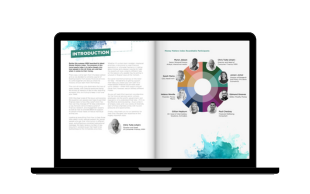
The MMI Summer Edition 2023
Over the past year, we’ve faced some unprecedented challenges. Food prices have hit a 45-year high, real-term pay has plummeted at its fastest pace in 20 years, and the Bank of England’s interest rates have scaled a 15-year high of 4.5%.
Given this landscape, we set out to explore a critical question: In the face of such stark financial realities, are we burying our heads in the sand, or are we responding with decisive actions?
Our Summer Edition of the Money Matters Index delves into the responses, attitudes, and coping mechanisms of our respondents in this challenging economic climate. We’d love for you to read our report by clicking here.
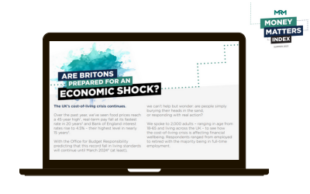
The MMI Spring Roundtable 2023
Following the publication of the Winter edition of Money Matters Index we invited a panel of leading financial services experts, commentators, journalists and researchers to discuss whether the era of financial aspiration is now giving way to an age of precarity.
The latest findings of our Money Matters Index revealed a creeping sense of anxiety and pessimism is starting to pervade long-term feelings and, therefore, the decisions normal people make about their finances.
We examined the implications of that trend with our panel of experts, and how the financial services industry needs to respond. We’d love for you to read our report by clicking here.
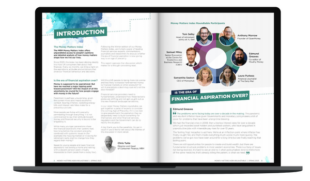
The MMI Winter edition 2022
The Winter 22 index revealed that Brits’ incomes are being squeezed to the hilt – to the extent that nearly two in five say their income doesn’t cover their expenditures. It also found that 54% are keeping the heating off, 45% are shopping in discount stores, and 30% are taking fewer trips in the car.
The research also revealed that financial pessimism may have reached a tipping point and is likely to be felt over the long-term, with over a third of respondents (33%) confirmed this new Age of Precarity had made them more pessimistic about their family’s future financial well-being.
To read the report, click here.
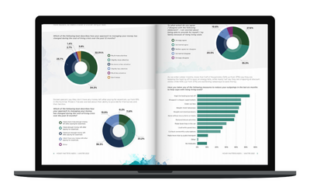
The MMI Spring Edition 2024
The pain for households has shown little signs of stopping over the past year.
The Bank of England continued to raise interest rates, reaching 14 consecutive events before peaking at 5.25%, the highest since April 2008. This rate has since been held during four further reviews to date, with experts not yet aligned on when any significant fall can be expected.
The OBR’s confirmation that real living standards in 2024 will be 3.5% lower than their pre-pandemic level, the largest fall since records began in 1950, also demonstrates just how serious the situation is – particularly for those already struggling day-to-day and with their future planning.
So, are people able to respond in any meaningful way to improve their situation? We spoke to 2,000 adults – ranging in age from 18-65 and living across the UK – to gauge their feeling about their own financial footing and
how able they are to begin to build their wealth.
We’d love for you to read our report by clicking here.

The MMI Summer Roundtable 2023
On the back of our Summer Money Matters Index – which considered how people in the UK think, act and feel when it comes to their money – we convened a panel of financial, research and engagement experts to delve more deeply into the Index’s findings.
The panel discussed the core themes, exploring whether people in the UK should accept they are now worse off financially, the impact of the cost-of-living crisis on financial aspiration and inclusion, and the support needed to ensure they are more resilient to future financial shocks.
You can read the full discussion in our report by clicking here.

The MMI Summer Edition 2023
Over the past year, we’ve faced some unprecedented challenges. Food prices have hit a 45-year high, real-term pay has plummeted at its fastest pace in 20 years, and the Bank of England’s interest rates have scaled a 15-year high of 4.5%.
Given this landscape, we set out to explore a critical question: In the face of such stark financial realities, are we burying our heads in the sand, or are we responding with decisive actions?
Our Summer Edition of the Money Matters Index delves into the responses, attitudes, and coping mechanisms of our respondents in this challenging economic climate. We’d love for you to read our report by clicking here.

The MMI Spring Roundtable 2023
Following the publication of the Winter edition of Money Matters Index we invited a panel of leading financial services experts, commentators, journalists and researchers to discuss whether the era of financial aspiration is now giving way to an age of precarity.
The latest findings of our Money Matters Index revealed a creeping sense of anxiety and pessimism is starting to pervade long-term feelings and, therefore, the decisions normal people make about their finances.
We examined the implications of that trend with our panel of experts, and how the financial services industry needs to respond. We’d love for you to read our report by clicking here.

The MMI Winter edition 2022
The Winter 22 index revealed that Brits’ incomes are being squeezed to the hilt – to the extent that nearly two in five say their income doesn’t cover their expenditures. It also found that 54% are keeping the heating off, 45% are shopping in discount stores, and 30% are taking fewer trips in the car.
The research also revealed that financial pessimism may have reached a tipping point and is likely to be felt over the long-term, with over a third of respondents (33%) confirmed this new Age of Precarity had made them more pessimistic about their family’s future financial well-being.
To read the report, click here.

The MMI Spring Edition 2024
The pain for households has shown little signs of stopping over the past year.
The Bank of England continued to raise interest rates, reaching 14 consecutive events before peaking at 5.25%, the highest since April 2008. This rate has since been held during four further reviews to date, with experts not yet aligned on when any significant fall can be expected.
The OBR’s confirmation that real living standards in 2024 will be 3.5% lower than their pre-pandemic level, the largest fall since records began in 1950, also demonstrates just how serious the situation is – particularly for those already struggling day-to-day and with their future planning.
So, are people able to respond in any meaningful way to improve their situation? We spoke to 2,000 adults – ranging in age from 18-65 and living across the UK – to gauge their feeling about their own financial footing and
how able they are to begin to build their wealth.
We’d love for you to read our report by clicking here.

The MMI Summer Roundtable 2023
On the back of our Summer Money Matters Index – which considered how people in the UK think, act and feel when it comes to their money – we convened a panel of financial, research and engagement experts to delve more deeply into the Index’s findings.
The panel discussed the core themes, exploring whether people in the UK should accept they are now worse off financially, the impact of the cost-of-living crisis on financial aspiration and inclusion, and the support needed to ensure they are more resilient to future financial shocks.
You can read the full discussion in our report by clicking here.

The MMI Summer Edition 2023
Over the past year, we’ve faced some unprecedented challenges. Food prices have hit a 45-year high, real-term pay has plummeted at its fastest pace in 20 years, and the Bank of England’s interest rates have scaled a 15-year high of 4.5%.
Given this landscape, we set out to explore a critical question: In the face of such stark financial realities, are we burying our heads in the sand, or are we responding with decisive actions?
Our Summer Edition of the Money Matters Index delves into the responses, attitudes, and coping mechanisms of our respondents in this challenging economic climate. We’d love for you to read our report by clicking here.

The MMI Spring Roundtable 2023
Following the publication of the Winter edition of Money Matters Index we invited a panel of leading financial services experts, commentators, journalists and researchers to discuss whether the era of financial aspiration is now giving way to an age of precarity.
The latest findings of our Money Matters Index revealed a creeping sense of anxiety and pessimism is starting to pervade long-term feelings and, therefore, the decisions normal people make about their finances.
We examined the implications of that trend with our panel of experts, and how the financial services industry needs to respond. We’d love for you to read our report by clicking here.

The MMI Winter edition 2022
The Winter 22 index revealed that Brits’ incomes are being squeezed to the hilt – to the extent that nearly two in five say their income doesn’t cover their expenditures. It also found that 54% are keeping the heating off, 45% are shopping in discount stores, and 30% are taking fewer trips in the car.
The research also revealed that financial pessimism may have reached a tipping point and is likely to be felt over the long-term, with over a third of respondents (33%) confirmed this new Age of Precarity had made them more pessimistic about their family’s future financial well-being.
To read the report, click here.

Roundtable soundbites
We asked our panel of experts to share their thoughts on some of the hot topics from the MMI Winter edition 2022. Hear what they had to say in the following videos…
-
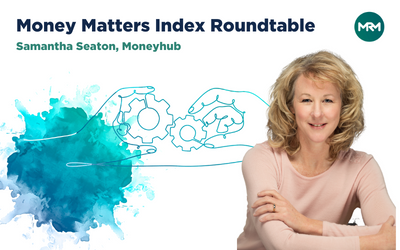 Do consumers have to get used to more financial uncertainty in the future? – Samantha Seaton, Moneyhub View Video
Do consumers have to get used to more financial uncertainty in the future? – Samantha Seaton, Moneyhub View Video
-
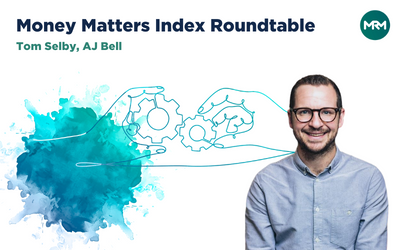 Do consumers have to get used to more financial uncertainty in the future? – Tom Selby, AJ Bell View Video
Do consumers have to get used to more financial uncertainty in the future? – Tom Selby, AJ Bell View Video
-
 How do you think this recent instability will impact consumers mindset? – Samantha Seaton, Moneyhub View Video
How do you think this recent instability will impact consumers mindset? – Samantha Seaton, Moneyhub View Video
-
 How do you think this recent instability will impact consumers mindset? – Tom Selby, AJ Bell View Video
How do you think this recent instability will impact consumers mindset? – Tom Selby, AJ Bell View Video
-
 How long will this age of financial precarity last? – Sam Miley, Cebr View Video
How long will this age of financial precarity last? – Sam Miley, Cebr View Video
-
 Is the era of financial aspiration over? – Edmund Greaves, Mouthy Money View Video
Is the era of financial aspiration over? – Edmund Greaves, Mouthy Money View Video
-
 Is the era of financial aspiration over? – Sam Miley, Cebr View Video
Is the era of financial aspiration over? – Sam Miley, Cebr View Video
-
 Is the era of financial aspiration over? – Samantha Seaton, Moneyhub View Video
Is the era of financial aspiration over? – Samantha Seaton, Moneyhub View Video
-
 Is the era of financial aspiration over? – Tom Selby, AJ Bell View Video
Is the era of financial aspiration over? – Tom Selby, AJ Bell View Video
- Journey into work – Ria View Video
